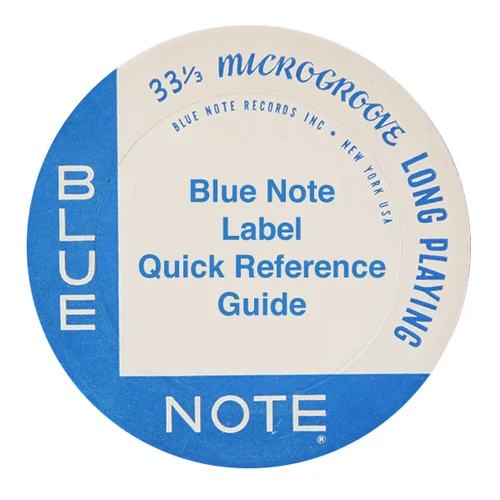A Subtle Sound: "The Modern Jazz Quartet At Music Inn (with Jimmy Guiffre)"
/"The Modern Jazz Quartet At Music Inn, Guest Artist: Jimmy Guiffre" • 1956 • Atlantic Records
Recorded August 28, 1956 at The Music Inn, Lenox, Massachusetts
The Selections:
The Tracks:
A1. Oh Bess, Oh Where's My Bess
A2. A Fugue For Music Inn
A3. Two Degrees East, Three Degrees West
A4. Serenade
B1. Fun
B2. Sun Dance
B3. The Man That Got Away
B4. A Morning In Paris
B5. Variation No. 1 On "God Rest Ye Merry, Gentlemen"
The Players:
John Lewis - Piano
Milt Jackson - Vibes
Percy Heath - Bass
Connie Kay - Drums
Jimmy Guiffre - Clarinet
The Record:
The MJQ At Birdland, 1956. Photo By Bob Parent
The Modern Jazz Quartet At Music Inn pairs up two distinct jazz artists: on one end you have the MJQ, who found commercial and critical success for nearly thirty years, and on the other you have the clarinetist Jimmy Guiffre, whose career followed a very different path. Guiffre may have had some success with forward-thinking critics, but his defining albums for Verve and Columbia in the late 1950s and early 1960s were commercial disasters, and after 1962 he didn't record again for nearly ten years. Much of this is due, of course, to Guiffre choosing to explore the avant-garde (he called his music "folk-jazz"), but the MJQ hardly "sold out" to achieve commercial viability. In fact, much of the MJQ's musical endeavors (particularly their most classic albums from the 1950s) were adventurous and very much outside the box, a fact clearly evidenced by the group's choice to team up with Guiffre and make a record like At Music Inn.
JImmy Guiffre
The pairing up of the MJQ with Guiffre is not as risky a proposition as it may seem at first glance, the MJQ, behind the mastery of Milt Jackson and John Lewis, were always masters of utilizing an open and minimalist concept in their compositions. The horn-less quartet format allowed them to explore certain aspects of jazz in their own unique way. Yah, they could swing with the best of them, but they also could captivate the listener with much slower tempos and sparser arrangements that still captured the listener's attention.
Guiffre himself was very adept at the minimalist and subtle approach to jazz, to the point that much of his groundbreaking music was lost to a wider audience. AllMusic calls his 1962 Columbia album Free Fall "one of the most revolutionary records to come out of the 1960s." Listening to it today it is easy to see both where this high praise comes from and also why jazz audiences of the day were not very interested. The original LP consisted of five clarinet solos, two duets for clarinet and bass, and three trio pieces. That lineup of tracks would be a tough sell even today, but it remains a mystery to me why Guiffre's work hasn't garnered more present-day attention and re-entered the canon of essential jazz listening.
At Music Inn is split between three compositions featuring the MJQ with Guiffre, and a remaining six tracks where only the quartet plays. The three collaborative tracks are clearly the highlights, in particular Guiffre's original "Fun", which he composed for the occaison, but there are also some fantastic moments of Lewis, Jackson, Percy Heath and Connie Kay at work. All of the music is excellent, with complex moments mixed in with the emotive and melodic underpinnings that both Lewis and Jackson were known to bring to the table. Guiffre's playing is full of life and is a direct challenge to anyone that thinks the clarinet has no place in a modern jazz setting. His compositions clearly energize the quartet, who complement him wonderfully, especially Jackson on the vibes. When the quartet steps out on their own, the resulting tunes here are deep and introspective, especially the wonderful Lewis composition "Two Degrees East, Three Degrees West."
The music was recorded at the Music Inn, located in Lenox, Masachussets, a unique spot where jazz musicians of the day both performed and also held workshops for other musicians (a really nice Boston Globe article on the place can be found here). The MJQ would record one more great album at the Music Inn, this one better known than the first, due to Sonny Rollins being the guest artist this time around. The Sonny Rollins edition was marked as Volume 2, and as such this one here is often referred to as Volume 1, but there is actually no such distinction made on this original pressing or any subsequent reissues. It has always surprised me a bit that with the acclaim that Volume 2 gets, the first one doesn't get more attention by the critical jazz history folks, but I guess that follows with the rest of Guiffre's career during this period: outstanding work with little fanfare.
The Vinyl:
Details: An original mono copy, on the classic 1950s black deep groove Atlantic Records label. I love this label variation, it just screams vintage vinyl to me.
Price: $17 from a local shop, vinyl is VG+ with a cover that still has much of it's original glossy appearance and is close to NM- condition.
Sound Quality: Heavyweight, deep groove vinyl with excellent vintage analog sound. Great separation of highs and lows. I will note that even after a cleaning with the Okki Nokki, there are pops in the quieter parts and a bit of distortion when Milt Jackson's really lays it down on the vibes. I'm not entirely sure if this distortion is due to some past abuse, or just a factor of the limitations in the recording methods of the day (likely a combination of both). Tom Dowd was the recording engineer, so we can at least be sure he knew what he was doing.
Notes: In addition to the excellent At Music Inn, the MJQ would meet up with Guiffre one more time in 1960 when the Jimmy Guiffre 3 (Jim Hall on guitar and Ralph Pena on bass) made an appearance on Third Stream Music, a record that again shows just how adventurous the commercially successful MJQ were willing to get (Lewis was a big proponent of the idea of the Third Stream, a concept that mixed together aspects of jazz and classical music). Perhaps it was the success of the group that allowed them the artistic freedom to explore new ideas, but nonetheless it is a testament to both them and Guiffre that they were willing to take jazz to new heights even if listeners of the day weren't quite ready to follow them.












